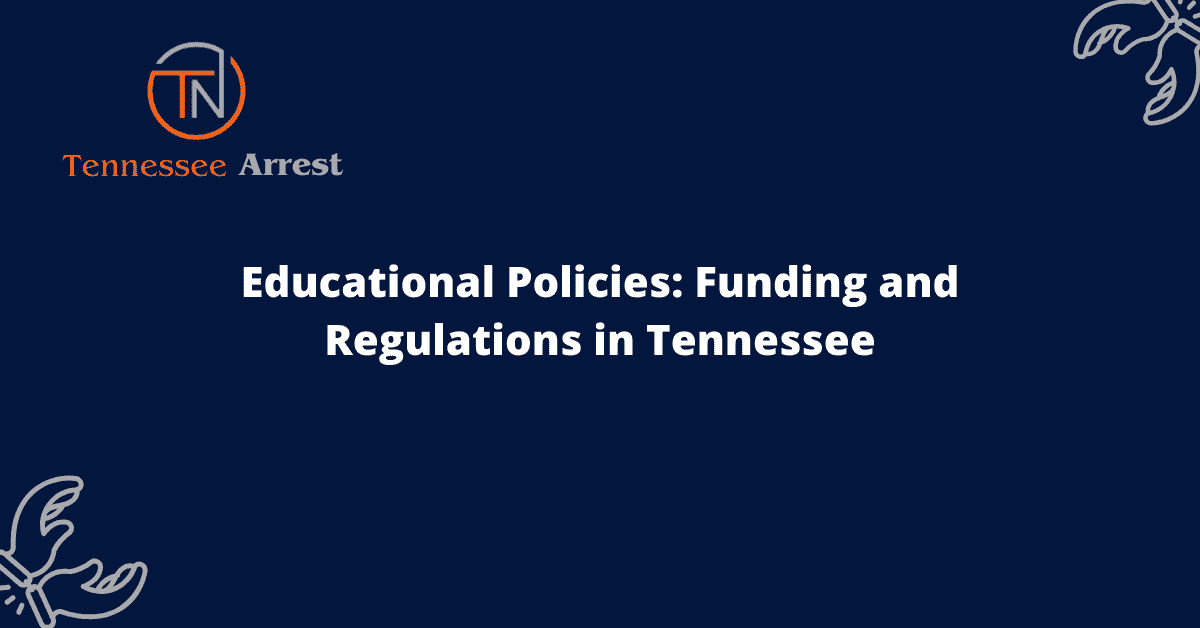Educational Policies: Funding and Regulations in Tennessee
Educational policies play a crucial role in shaping the quality and accessibility of education in any state. In Tennessee, funding and regulations are key aspects that impact the educational system. Adequate funding ensures that schools have the necessary resources to provide a high-quality education, while regulations help maintain standards and accountability.
Tennessee has made significant efforts to prioritize education and ensure adequate funding for its schools. The state has implemented various funding mechanisms, including a Basic Education Program (BEP) that provides funding based on student enrollment and specific needs. This funding model aims to address disparities in resources and ensure that all students have access to a quality education, regardless of their location or socioeconomic status.
Importance of Adequate Funding in Education
One crucial aspect that impacts the educational system in Tennessee is adequate funding. Adequate funding ensures that schools have the necessary resources to provide a high-quality education to students. Without sufficient funding, schools may struggle to provide essential materials, hire qualified teachers, and offer extracurricular activities that enhance the learning experience.
The Basic Education Program (BEP)
Tennessee has implemented a funding mechanism called the Basic Education Program (BEP). This program provides funding based on student enrollment and specific needs. By considering the unique requirements of each school and student, the BEP aims to address disparities in resources and ensure that all students have access to a quality education, regardless of their location or socioeconomic status.
Addressing Resource Disparities
One of the primary goals of the BEP is to address resource disparities among schools. By allocating funding based on student enrollment and specific needs, the program helps ensure that schools in economically disadvantaged areas receive adequate resources. This funding model aims to level the playing field and provide equal opportunities for all students, regardless of their background.
Promoting Equity in Education
The BEP plays a crucial role in promoting equity in education. By prioritizing funding based on student needs, the program helps bridge the achievement gap between students from different socioeconomic backgrounds. This ensures that students facing additional challenges, such as poverty or limited resources at home, have access to the necessary support and resources to succeed academically.
Regulations and Standards
In addition to funding, regulations and standards play a vital role in shaping the quality and accessibility of education in Tennessee. These regulations help maintain consistency, accountability, and high standards across the state’s educational system.
Maintaining Quality Education
Regulations ensure that schools meet specific criteria to maintain a high standard of education. These criteria may include teacher qualifications, curriculum standards, and student assessment measures. By enforcing these regulations, Tennessee aims to provide a consistent and quality education experience for all students.
Ensuring Accountability
Regulations also help ensure accountability within the educational system. By establishing guidelines and expectations, the state can monitor and evaluate school performance. This accountability ensures that schools are meeting the necessary standards and providing students with the education they deserve.
In conclusion, adequate funding and regulations are crucial aspects that impact the educational system in Tennessee. The Basic Education Program (BEP) addresses resource disparities and promotes equity in education by allocating funding based on student needs. Furthermore, regulations and standards help maintain a high-quality education and ensure accountability within the educational system. By prioritizing education and implementing these measures, Tennessee aims to provide all students with equal opportunities and a quality education.
FAQs
What is the funding structure for educational policies in Tennessee?
Education in Tennessee is primarily funded through a combination of state and local tax revenues. The state government allocates funds to school districts based on various factors such as student enrollment and district size. Local property taxes also contribute to the funding of schools in the state.
How are educational regulations enforced in Tennessee?
Educational regulations in Tennessee are enforced through the Tennessee Department of Education. The department sets and enforces standards for curriculum, teacher qualifications, and school performance. Regular monitoring and evaluation are conducted to ensure compliance with these regulations.
What are the key regulations governing charter schools in Tennessee?
In Tennessee, charter schools are subject to specific regulations outlined in the Tennessee Public Charter School Act. These regulations cover areas such as the application and approval process for charter schools, funding mechanisms, accountability measures, and the renewal and revocation of charters.
How does Tennessee allocate funding for special education programs?
Tennessee follows a formula-based approach for allocating funding for special education programs. The state uses a combination of federal and state funds to provide additional resources and support for students with disabilities, ensuring that they have access to appropriate educational services.
What role does the state government play in regulating private schools in Tennessee?
The state government in Tennessee has limited regulation over private schools. While private schools must meet certain health and safety requirements, they have more autonomy in terms of curriculum and educational policies compared to public schools. However, they are still subject to some state regulations to ensure basic standards are met.
How are educational policies in Tennessee influenced by federal regulations?
Educational policies in Tennessee are influenced by federal regulations, particularly those outlined in the Every Student Succeeds Act (ESSA). ESSA sets guidelines and requirements for areas such as accountability, assessment, and funding. The state must align its policies with these federal regulations to receive federal funding and support.







